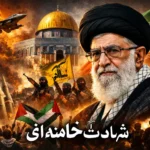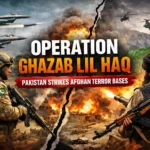Pakistan’s annual Civil Awards ceremony, traditionally held on March 23 and August 14, has long been a moment to honour citizens whose contributions brought pride to the nation. The awards such as Nishan-e-Pakistan, Hilal-e-Imtiaz, and Tamgha-e-Shujaat have historically been conferred upon globally recognised figures like Abdul Sattar Edhi, the legendary humanitarian, and Dr. Abdus Salam, Pakistan’s only Nobel Prize-winning scientist.
However, the 2025 list of recipients released by the Prime Minister’s Committee on Marka-e-Haq has sparked heated debate. Critics say the awards are increasingly given to political loyalists rather than individuals of exceptional merit, eroding the prestige they once carried.
From National Icons to Political Appointees
This year’s list includes several high-profile politicians, cabinet members, and party affiliates many of whom are currently serving under the ruling government. While the awards to armed forces personnel for gallantry during recent Pakistan–India military tensions are widely respected, the inclusion of politically connected figures has raised questions about merit and transparency.
Notably, some awardees are controversial figures:
- Prime Minister Muhammad Shahbaz Sharif and Bilawal Bhutto Zardari, both of whom opponents allege came to power through the disputed Form-47 election process.
- Ahad Khan Cheema, a long-time ally of the Sharif family, who in the past faced imprisonment on corruption charges before returning to senior government roles.
In earlier decades, Pakistan’s civil awards honoured universal figures of service and excellence — such as the late Abdul Sattar Edhi, the world-renowned humanitarian, and Dr. Abdus Salam, the Nobel Prize-winning scientist. Today, however, the criteria seem blurred, with political alignment often appearing more decisive than national contribution.
Military Honours Still Command Respect
Despite the political controversy, awards given to Pakistan’s military and security forces for gallantry in the recent Indo-Pak standoff have been met with widespread approval. Recipients include officers from the Pakistan Army, Navy, and Air Force who reportedly played key roles in operational success.
These awards follow a long-standing institutional process, where nominations are vetted internally by the armed forces before being forwarded to the Prime Minister’s office. This system, though not without criticism, is seen as more merit-based compared to political appointments.
The Decline of a National Honour
The Civil Awards were once a unifying symbol, recognising contributions in science, literature, humanitarian service, education, and defence. Today, critics argue, they risk becoming political tools — symbolic handshakes between ruling parties and their allies.
Analysts warn that if this trend continues, genuine achievers may be discouraged from striving for excellence, knowing recognition is tied to political alignment rather than merit.
Conclusion
The Pakistan Civil Awards 2025 reflect the nation’s shifting priorities. While the armed forces’ gallantry awards remain respected, the politicisation of civilian honours threatens the legacy of a system that once celebrated the country’s finest minds and most selfless hearts.
Unless transparency and merit are restored, Pakistan risks reducing its highest civilian honours to little more than ceremonial politics a far cry from the days of Edhi and Abdus Salam.









